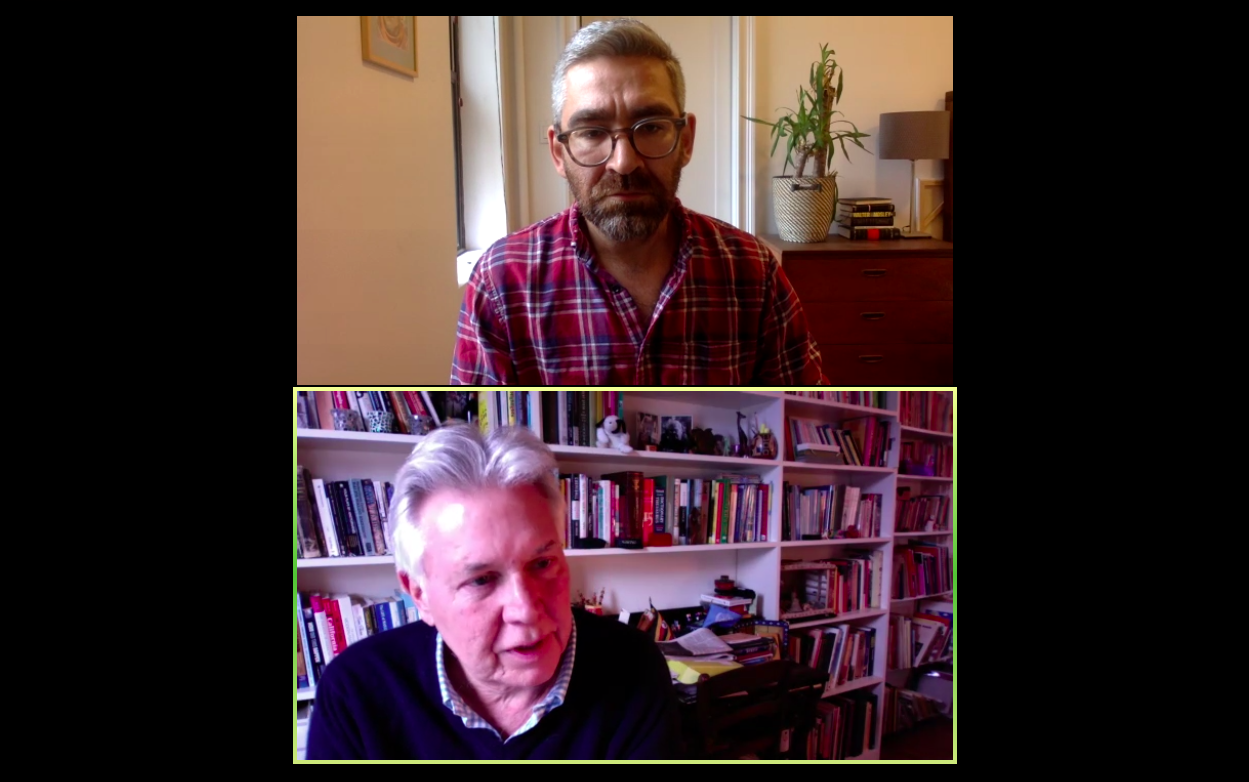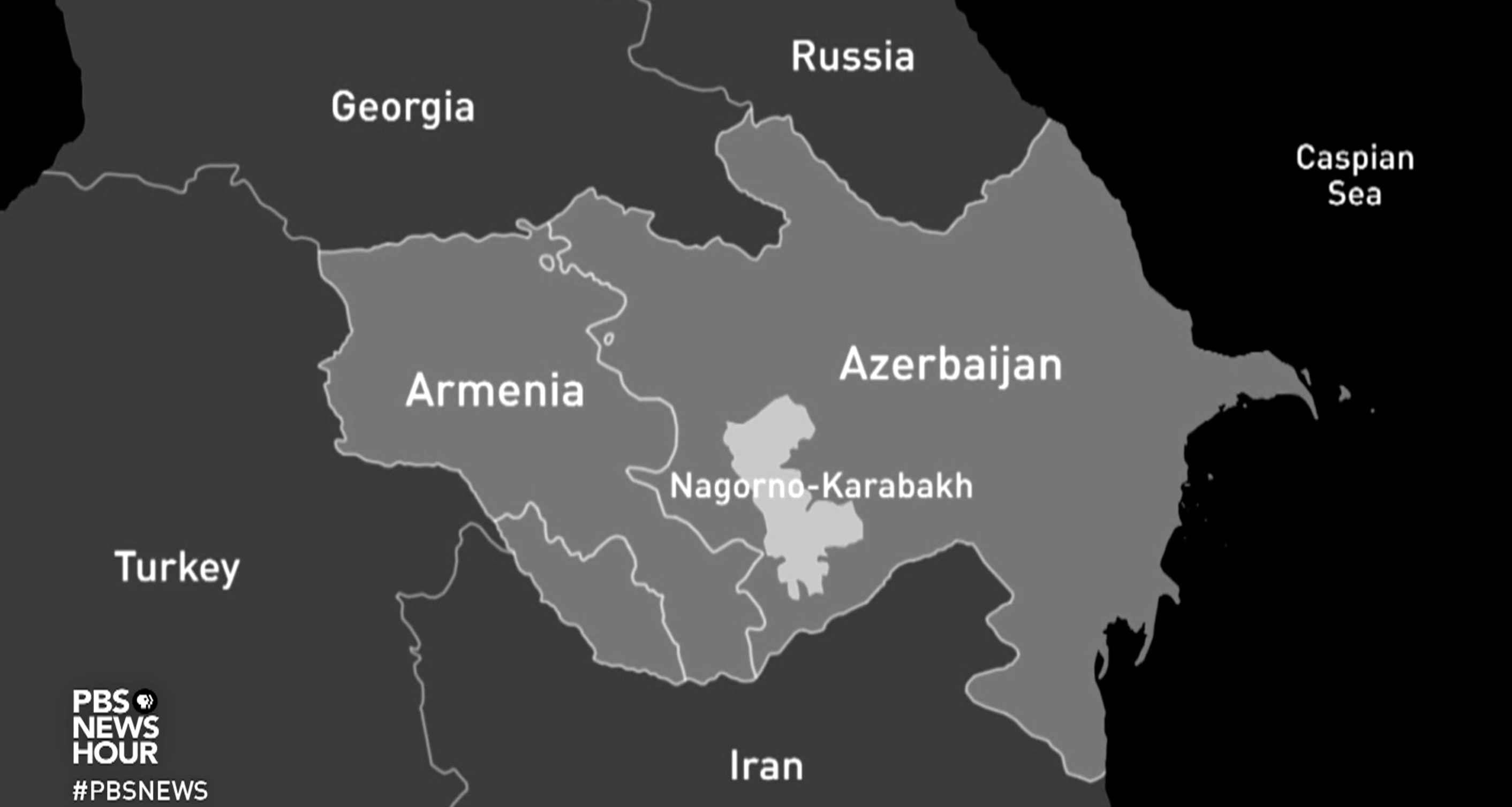
In September 2020, a decades-old frozen conflict erupted once again when the former Soviet republics of Armenia and Azerbaijan waged war over the ethnic-Armenian enclave of Nagorno-Karabakh and its surrounding territories. Despite the intensity of the fighting, few Western media outlets sent reporters to the region as COVID-19 preoccupied much of the world. Yet, according to PBS NewsHour special correspondent Simon Ostrovsky, "It is hard to overstate how much [the conflict] has impacted the people of both Azerbaijan and Armenia."
On December 22, 2020, Ostrovsky joined Pulitzer Center Executive Director Jon Sawyer during a webinar to discuss reporting on the conflict, the tentative peace deal in place, and the geopolitical implications for countries that supported and armed both sides. Before discussing Nagorno-Karabakh, Ostrovsky spoke to the importance of the Pulitzer Center in funding his reporting, especially at a time when major media networks were focused on coverage of the pandemic and U.S. election.
"We also have to remember that sometimes as journalists, it's our role to let the viewers know what's going on, whether they like it or not," Ostrovsky said. "Luckily we have the Pulitzer Center to help us do that and help me go to some of these places."
During his Pulitzer Center-supported reporting trips for PBS NewsHour, Ostrovsky visited active front lines, freshly occupied territories, and peaceful cityscapes in order to understand the scope of civilian and military experiences within the Nagorno-Karabakh crisis.
Unlike when war first broke out between the newly independent Armenia and Azerbaijan in the early 1990s, both sides have had years to arm themselves and train, Ostrovsky explained. To Armenia's surprise, Azerbaijan soon found itself retaking lands adjacent to Nagorno-Karabakh that it had lost in the previous conflict.
"Part of the reason that [those gains] were able to take place was because of the technology that Azerbaijan had access to that it didn't have in the first war and the money it earned over the years from exporting its oil that it was able to spend on modern warfare," Ostrovsky said.
Ostrovsky noted another major contributor to Azerbaijan's success was support from a "motley crew of powers from around the world." Turkey supplied its ally with advanced weaponry, including drones, and even sent in Syrian mercenaries to fight on Azerbaijan's behalf. While it branded itself as a mediator throughout the fighting, Russia has armed both Armenia and Azerbaijan over the years.
With the United States and the U.N. largely removed from the conflict, observers have debated which regional power is poised to gain the most from the Azerbaijani victory, a question Ostrovsky was asked to address during the webinar. In November, Russia sent peacekeepers to Azerbaijani territory, marking its military return to all three South Caucasus nations it once controlled as the Soviet Union.
"Now it has influence, and I think for Russia influence is a goal in and of itself," Ostrovsky said. "They want to be a regional power, they want it to be a global power."
While Ostrovsky discussed how terrifying and stressful it could be working in a combat zone, he also spoke to the eeriness of visiting towns that had been emptied of their ethnic Armenian populations as Azerbaijani troops advanced.
"All the buildings are the same. The streets are the same. The trees are the same. But all the people have switched, and it's not something that you can really see every day. It's really hard to describe," he reflected, comparing it to scenes he saw while covering the conflict in Eastern Ukraine.
While small skirmishes have been reported, the 2020 Nagorno-Karabakh fighting has largely concluded, with territories handed over to Azerbaijan that had been in ethnic Armenian hands since the 1990s. Much uncertainty revolves around the Russian-brokered armistice, especially as videos have surfaced of Azerbaijani troops executing and mutilating Armenian soldiers and abusing prisoners of war. Ostrovsky spoke to whether another Nagorno-Karabakh conflict is inevitable.
"I think the most important thing that I would hope would happen is that both sides could potentially see the other side's story," Ostrovsky said. "Understand that both sides have gone through a comparable course of events that has caused a similar kind of trauma and anguish [...] Hopefully they could use that [shared experience] to go through some kind of a reconciliation process that will allow them to live in peace in those areas."
Otherwise, Ostrovsky says, "It's just a matter of time before war breaks out in Nagorno-Karabakh again."






